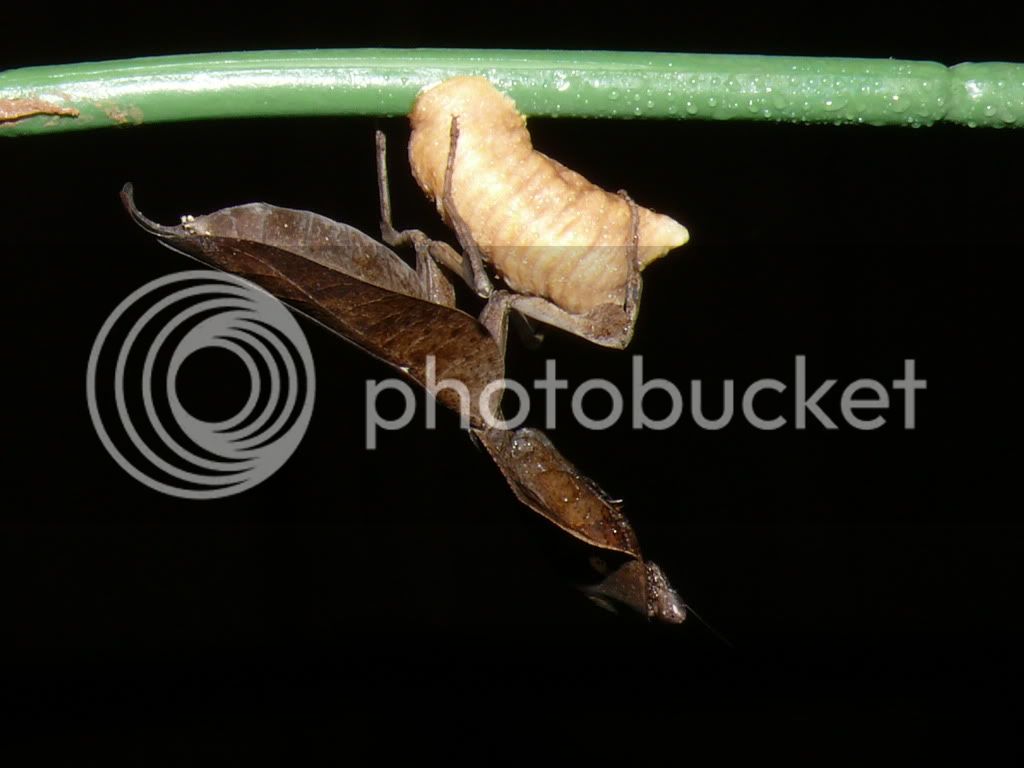I personally found this very touching, so I decided to share this with everyone. I will never believe it if someone tried to tell me all bugs do not care about their offspring, because this one (consciously or unconsciously) goes above and beyond to protect her young. Not only does she shield her ootheca with her own body, but she also showed me that not all adult females will cannibalize on their young. Instead when her offspring hatched, she patiently stood there as they climbed all over and around her.
So here's what happened today: I sadly just found that my prized D. lobata female has passed away of old age. She lived a good 7 months as an adult and over the course of her life has given me three healthy and fertile oothecas, and even in her death she is holding on and protecting her fourth and final ootheca. I am still amazed by the dedication and patience D. lobata females put into protecting their ootheca, may she rest in peace.

So here's what happened today: I sadly just found that my prized D. lobata female has passed away of old age. She lived a good 7 months as an adult and over the course of her life has given me three healthy and fertile oothecas, and even in her death she is holding on and protecting her fourth and final ootheca. I am still amazed by the dedication and patience D. lobata females put into protecting their ootheca, may she rest in peace.















































